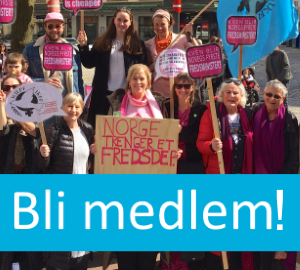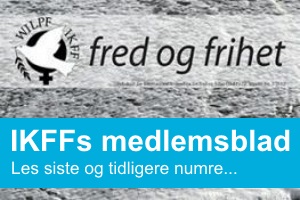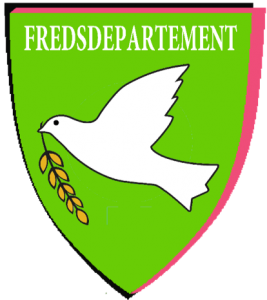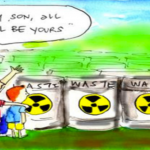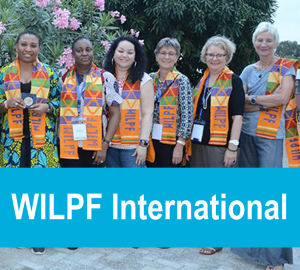To the High-Level Political Forum on Sustainable Development (HLPF) and all governments in the world
The organizations which have signed on to this letter urge all governments, the High-Level Political Forum on Sustainable Development (HLPF), other UN- and financial institutions to increase the support for agroecology and other forms of sustainable agriculture for small-scale farmers, and to underline the importance of such support to be able to reach several of the SDGs.
Increased support to small-scale sustainable farming is a key to reach
SDG 1: End poverty in all its forms everywhere.
SDG 2: End hunger, achieve food security and improved nutrition and promote sustainable agriculture.
SDG 5: Achieve gender equality and empower all women and girls.
SDG 12. Ensure sustainable consumption and production patterns.
SDG 13: Take urgent action to combat climate change and its impacts.
The World Bank World Development Report 2008, Agriculture for Development, states that “…GDP growth originating in agriculture is at least twice as effective in reducing poverty as GDP growth originating outside agriculture… For China, aggregate growth originating in agriculture is estimated to have been 3.5 times more effective in reducing poverty than growth outside agriculture – and for Latin-America 2.7 times more”[1]
FAO also states the importance and efficiency of investments in agriculture: “Agriculture plays a vital role for economic growth and sustainable development. The evidence suggests that agriculture gross domestic product (GDP) growth in developing countries is on average 2.9 times more effective in reducing poverty relative to non-agriculture GDP growth…”[2]
Support for small-scale sustainable agriculture is also a key to eradicate hunger, create jobs, improve the situation of women, to reduce climate change, and to make agriculture sustainable. Despite this, support for sustainable agriculture in developing countries has a low priority both in most developing countries and in development support from the OECD countries.
In 2003, Heads of State and Government of the members of the African Union (AU) agreed on the Maputo Declaration to adopt sound policies for agricultural and rural development, and committed themselves to allocating at least 10% of national budgetary resources for their implementation within five years. However, ten years later, only nine countries had reached to goal of 10%. 45 countries had not. In 2014, the members of the African Union re-committed to the 10% in the Malabo Declaration.
Support for agriculture is also low in the Official Development Assistance (ODA) from the OECD countries; only about 7,5% of the total ODA goes to agriculture
The High Level Panel of Experts on Food Security and Nutrition, in its report Investing in Smallholder Agriculture for Food Security (2013), stated that “Public investments in and for agriculture have fallen considerably since the 1980s. It is now widely recognized that agriculture has been neglected at both the national and international levels. Many agricultural banks (mostly linked to, and supported by, the state) have disappeared, and extension services, applied research and investment in infrastructure projects have declined since the mid-1980s”[3]
The small-scale farmers are the most important investors in their own farms,[4] but they do not have sufficient access to the finances they need. Less than a quarter of the financial needs of small-scale farmers in developing countries are met, leaving an annual financing gap of more than US$ 150 billion according to Blending4AG[5] – an initiative by CTA Technical Centre for Agricultural and Rural Cooperation which is a joint international institution of the African, Caribbean and Pacific (ACP) Group of States and the European Union (EU).[6]
A paradigm shift from industrial agriculture to diversified agroecological systems
In The state of Food and Agriculture (2016), FAO underline the need for “a profound transformation of food and agriculture systems worldwide.” The report from the International panel of Experts on Sustainable Food Systems (IPES) have some of the same message, and it points out a way forward. One of the key messages in the report is
“What is required is a fundamentally different model of agriculture based on diversifying farms and farming landscapes, replacing chemical inputs, optimizing biodiversity and stimulating interactions between different species, as part of holistic strategies to build long-term fertility, healthy agro-ecosystems and secure livelihoods, i.e. ‘diversified agroecological systems’.” [7]
We, the organizations that have signed on to this letter, agree on the need for a paradigm shift from industrial agriculture to diversified agroecological systems. Such a shift combined with drastically increase of the support to small-scale agroecological and other forms of sustainable agriculture are necessary to reach many of the SDGs. We ask the governments in all countries to spend at least 10% of the national budgets for support of sustainable agriculture, primarily for small-scale farmers.
Organizations that have signed on to this document*
June – July 2017
More and Better Network (www.moreandbetter.org)
*) Please send a mail to secretariat@moreandbetter.org from the organizations which sign on to the letter telling that the organization sign on.
[1] The World Bank World Development Report 2008, Agriculture for Development.
[2] FAO. 2015. Background paper. Forth private sector partnership dialogue: Inclusive finance and investment models in agriculture
[3] The High Level Panel of Experts on Food Security and Nutrition. 2013. Op.cit.
[4] The High Level Panel of Experts on Food Security and Nutrition. 2013. Extract from the Report Investing in smallholder Agriculture for Food Security Summary and Recommendations
[5] Blending4AG. http://blending4ag.org/en/about.html
[6] www.cta.int/en/
[7] www.ipes-food.org/images/Reports/UniformityToDiversity_FullReport.pdf


